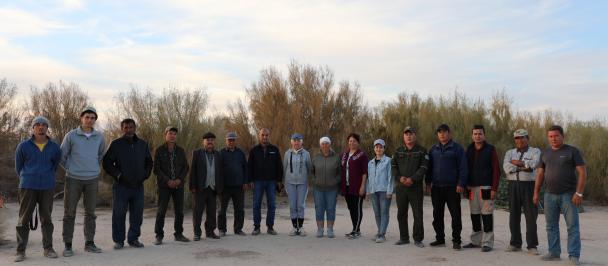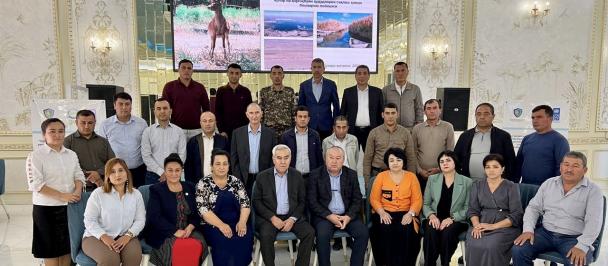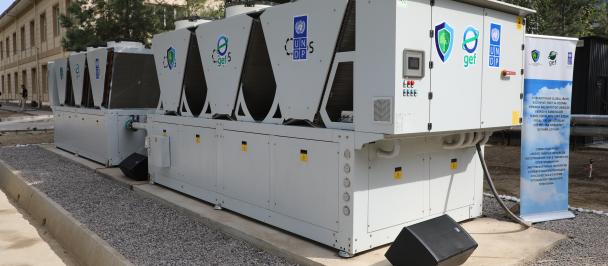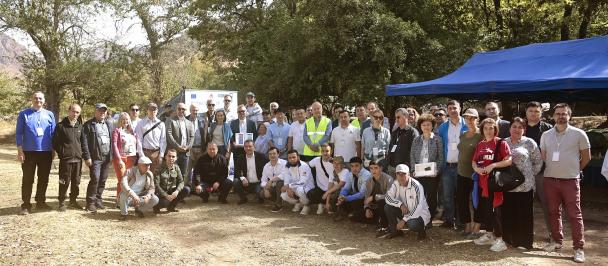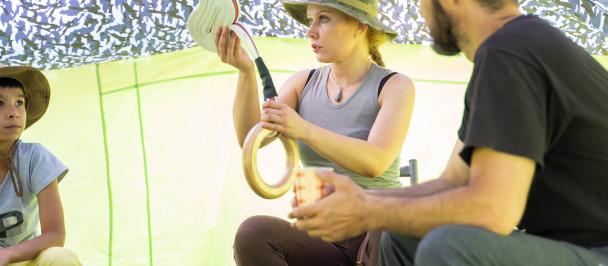Statement of Ms. Matilda Dimovska, UNDP Resident Representative in Uzbekistan at 2nd National Agricultural Research Forum
June 1, 2022
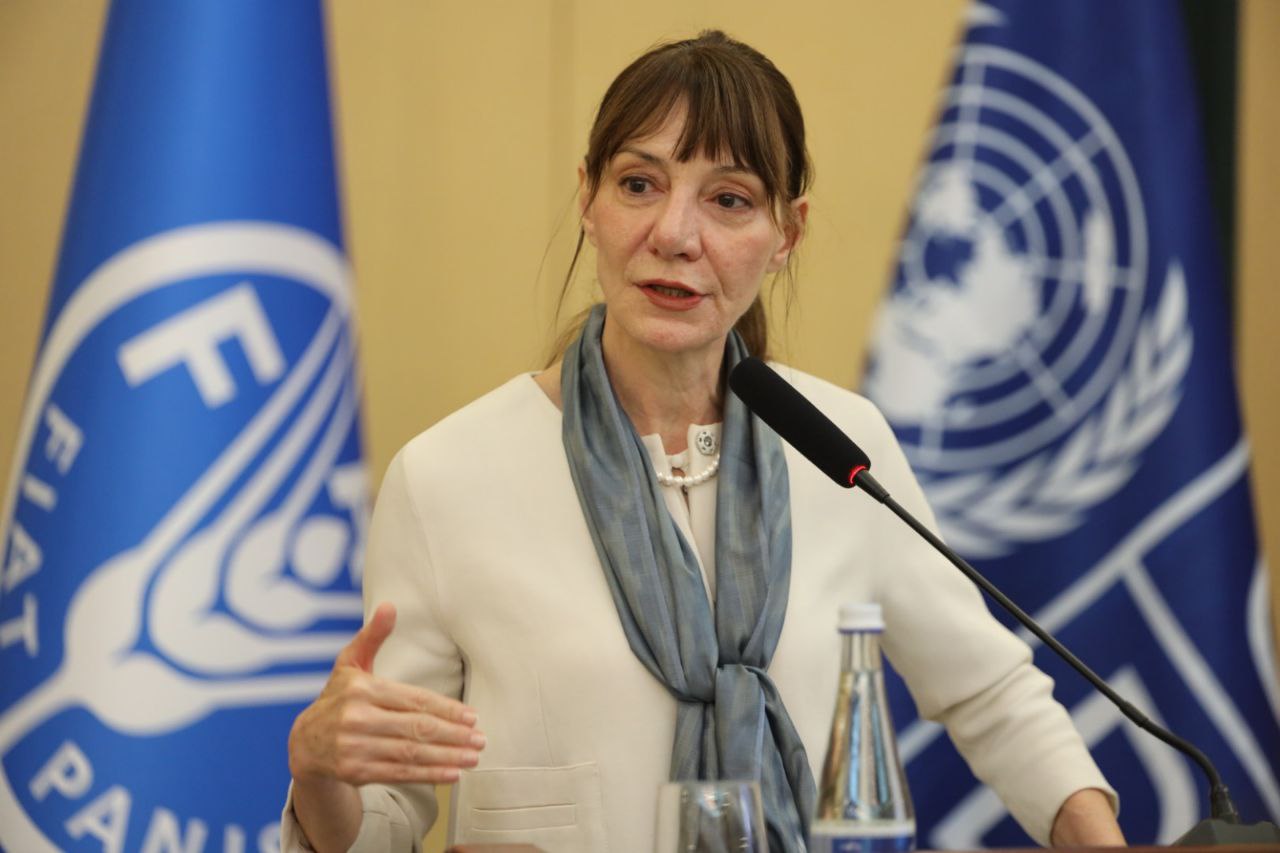
Welcome and Greetings
Assalomu aleykum hur-mat-li anju-man ishtirok-chilari, ho-nim-lar va ja-nob-lar, UNDP is very pleased to participate in today’s 2nd National Agricultural Research Forum to result with strategic framework for development of agricultural research in Uzbekistan.
Agriculture is Uzbekistan’s sector that is touching lives of almost all people in the country. At the same time, it heavily relies on water, land, and energy as inputs.
Among Central Asian countries, Uzbekistan is with largest irrigated land area, large rural population, and highest population density. Also, for maintaining of food security Uzbekistan is the most depended on efficient agri-food production system. The latter came also during the last years national consultation in the lead to the global Food System Summit, on which UNDP supported the Ministry.
This is also exacerbated with the context in which the country is now – the disproportional exposure to climate change and the emerging world food security crisis.
Looking forward, Uzbekistan rightly set higher Nationally Determined Commitments to the Paris Agreement, prioritized the transition to green economy, as well as initiated actions to address one of the most striking examples of human induced environmental disasterswith huge human consequences – the drying Aral Sea, and the initiative to transform the region into a zone of environmental innovation and technology.
It is therefore now the time for ambitious transformative approaches and transition to a sustainable agriculture. Which, among other, requires a new knowledge base and forms of knowledge and learning for food production and development of agriculture. And brings the criticality of integration between research, knowledge and practices.
Knowledge exchange, learning and innovation in agriculture
The relationship between farmers, society and the natural world is changing due to diminishing resources, growing populations and pressure on the environment, changing societal expectations, new technologies and the increasing impacts of climate change.
The future of agriculture and the organisation of the food chain from producer to consumer will be very different. What is more, non-food agricultural issues are becoming increasingly important. It is for these reasons that farmers and foresters need new knowledge, new skills and innovative ideas to develop and manage smarter and more sustainable production systems.
But, approaches to knowledge exchange, learning and innovation in agriculture are rapidly evolving.
In the past, the ‘linear knowledge transfer’ model may have appeared sufficient - to work on solutions in a research environment and then pass them on to the farmer. Nowadays, this is becoming outdated. New and better ways to share knowledge and expertise are essential to keep agriculture and food production competitive and rural areas vibrant in the 21st century. Knowledge is now co-created by farmers, scientists, advisers, enterprises, NGOs, etc.
Inevitably, everybody involved in farming, advising, research, training and education is facing challenges in order to adjust to this moving context. New skills are needed to make wise and effective use of new communication channels.
Agricultural Knowledge and Innovation Systems (AKIS) is reference to such knowledge exchange system, which can include farming practice, businesses, authorities, research, etc. and can vary a lot, depending on the context. But ultimately helps bridge the gap between science and practice and promotes farmer-led interactive innovation.
Such new approaches are already being used across Europe to improve knowledge exchange, learning and interactive innovation in the agricultural, forestry and rural development sectors. The agricultural community is becoming more creative and resourceful.
The lessons are that new approaches to exchanging knowledge need to be firmly set into the local context, and take time to become fully established. But also, that everyone involved in agricultural knowledge systems need to focus on the real issues that farmers face. This way they will deliver feasible solutions which farmers are motivated to implement and from which they will benefit.
UAKIS project
Let me finish by saying that, luckily, in Uzbekistan we have the EU funded and guided joint engagement with the Ministry of Agriculture to support inclusive transition to a “green” economy in the Agri-food sector and development of a “climate-smart” Uzbek Agriculture Knowledge and Innovation System (AKIS). An initiative aligned with the European Green Deal, in particular the Farm-to-Fork Strategy.
Conclusion
I finish with hoping that we will sue the momentum and opportunity of large resources allocated to the agriculture sector, and that this event will be serve and input to operationalization of AKIS in Uzbekistan. It would be very important to plan the appropriate role and approach of research in UAKIS. But ultimately to put in center of such search – the farmers, the food industry and the rural citizens.
And I wish you all the best in your discussions over the next two days.

 Locations
Locations